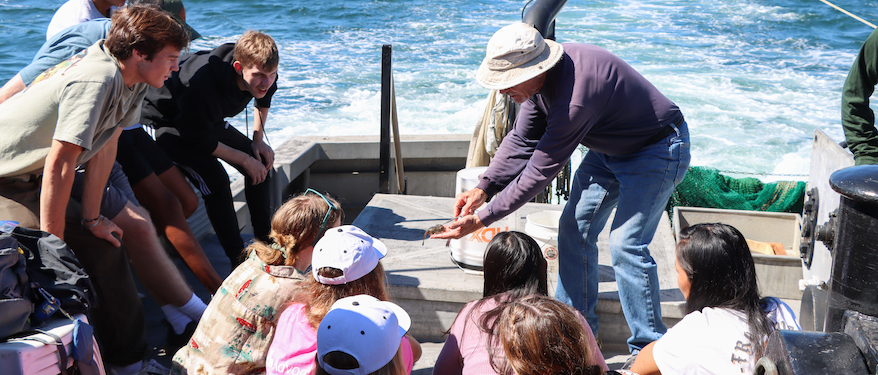Environmental Studies

What is Environmental Studies?
A solid background in environmentalism requires a basic fluency with a wide diversity of approaches. In our program, students will examine the natural environment from the perspectives of the social sciences, humanities and environmental sciences, applying them in an innovative capstone seminar. Additionally, students will be provided with a broad foundation in the environment, enabling them to approach urgent environmental questions and complex environmental issues from a variety of angles.
What do Environmental Studies majors do?
Environmental Studies majors and minors will examine issues such as global climate change, biodiversity conservation, sustainable development, the rights and value of non-human animals and nature, population and resource consumption, the role of the environment in local, national and international politics, environmental justice and environmental racism.
Is this major right for you?
You might be an Environmental Studies major if you:
- Are intrigued by the ways in which humans and the environment shape one another
- Hope to understand the environment from scientific, policy, ethical, historical and social perspectives
- Want to learn more about urgent issues such as climate change and global warming action
- Committed to justice for the environment, humans and animals
- Are interested in career paths such as environmental planning, law and advocacy
About our faculty
Our departmental and affiliated faculty members have strong backgrounds in areas such as urban green spaces, sustainable agriculture, local environmental planning, urban wildlife ecology, women and environmental justice, food security, religion and the environment, American and Chinese environmental history and global climate policy.
Our faculty are all active in their respective fields, publishing work, contributing to the community through public scholarship and service on local commissions and incorporating their research and activism into their teaching.
About our students and graduates
Our students have many opportunities to become involved in environmental research and activism beyond the classroom. Many of our students intern with LMU's Center for Urban Resilience, which conducts research on a variety of topics including wetlands habitat restoration, public environmental education and urban tree canopy distribution. Students may also volunteer at LMU's community garden, help organize events for campus vegetarians and vegans and journey on Alternative Breaks trips to learn about sustainable living around the globe.
Recent graduates have pursued fellowships with state environmental agencies, graduate school programs and employment with city planning departments.
Representative courses
Our offered courses have included:
- Environmental Planning and Policy
- Sustainable Cities
- Geographic Information Systems
- Women and Environmental Justice
- Mediterranean Cities
- Environmental History
- Urban Ecology
- Environmental Ethics